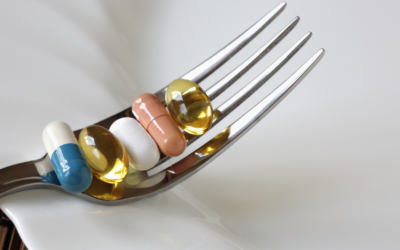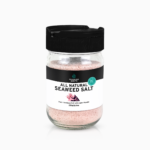Pyroluria. What is it, how do you know you may have it and how can you help treat it?
Pyroluria
Pyroluria, (originally known as malvaria) and also known as kryptopyrroluria, is a chemical imbalance involving an abnormality in hemoglobin synthesis. People who have this condition produce too much of a byproduct of hemoglobin synthesis called kryptopyrrole (KP).
Kryptopyrroles bind to pyridoxine (vitamin B6) and zinc and make these very important nutrients unavailable for physiological and chemical functions including working as co-factors for enzymes in metabolism. These essential nutrients when bound to kryptopyrrole are removed from the bloodstream and excreted into the urine as pyrroles.
The effect of pyroluria and the deficiency of zinc and B6 can be mild, moderate, or severe depending on the severity of the imbalance. Symptoms may include: unable to deal with stress, nervousness, anxiety, mood swings, severe inner tension, episodic anger, poor short-term memory and depression.
Its onset usually occurs during teenage years with a traumatic incident or stress, such as a change in school, loss of a loved one or moving towns. Even though the disorder does not show until teenage years it is thought to be genetic. Depending on the degree of the disorder there may be severe depression, schizophrenia, alcoholism, autism, bipolar disorder (manic-depressive disorder) or on rare occasions, DID (dissociative identity disorder more commonly known as multiple personalities). All of these are different manifestations of pyroluria.
Unfortunately pyroluria is not a recognized condition by many mental health practitioners or general practitioners but the following tables shows a significance in many mental disorders – I find the more places I look for these statistics the more varied they are, it is important to know that pyroluria does have some significance in these disorders.
Disorder % with Pyroluria
Autism 50%
Alcoholism 40%
Depression 70%
ADD/ADHD 30%
Bipolar 18%
Schizophrenia 40%
General Population 11%
How Pyroluria is Diagnosed
Pyroluria is diagnosed by a simple urine test which detects KPU in urine. Most people have less than 10 mcg/dL of KP. Persons with 10-20 mcg/dl are considered to have “borderline” pyroluria and can benefit from treatment. People with levels above 20 mcg/dl are considered to have pyroluria, especially if the following emotional and physical characteristics are present as well as signs of autism, depression, ADD and ADHD and other maladies already spoken about. In Australia SAFE Analytical Laboratories specialise in KPU testing and I would suggest you use them as opposed to other as the chemical analysis for KP is difficult due to the tendency for this chemical to decompose.
Sometimes it is necessary to repeat the urine test to properly determine the level of KP being excreted. For the initial diagnosis, no vitamins or minerals should be taken for two days before the urine is collected (This is to avoid false negative results). The specimen should be handled properly as well – collected and frozen immediately and protected from any light by being placed in aluminum foil. A repeat test after treatment to determine if the condition has been improved will be helpful.
Common emotional and physical characteristics of pyroluria
• Poor morning appetite and/or tendency to skip breakfast
• Morning nausea
• Pale skin, poor tanning or burn easy in sun
• Sensitivity to bright light
• Hypersensitive to loud noises
• Reading difficulties (e.g. dyslexia)
• Histrionic (dramatic)
• Argumentative/enjoy argument
• Mood swings or temper outbursts
• Much higher capability & alertness in the evening, compared to mornings
• Anxiousness
• Preference for spicy or heavily flavored foods
• Abnormal body fat distribution
• Significant growth after the age of 16
• White spots on finger nails
• Little or no dream recall
Treatment
Pyroluria is managed in part by restoring vitamin B6 and zinc. The type of replacement therapy is very important as zinc must be provided in an efficiently absorbed form. Vitamin B6 is also available in several forms. Other nutrients may assist include niacinamide, pantothenic acid, manganese, vitamins C and E. Food sources and nutritional supplements containing copper and red/yellow food dyes should be avoided.
People with mild-moderate pyroluria usually have a fairly rapid response to treatment if no other chemical imbalances are present. People with severe pyroluria usually require several weeks before progress is seen and improvement may be gradual over 3 – 12 months. Features of pyroluria usually recur within 2 – 4 weeks if the nutritional program is stopped. Thus, the need for treatment is indefinite.
Diet of course is also extremely important. A diet filled with real foods including green leafy vegetables, meat, fish, chicken, fruit, nuts, seeds, eggs, and good quality dairy. I would stay away for the most part from many grains and cereals as they may bind with the zinc.
Food sources high in zinc are most meats, chicken, fish, turkey, pumpkin seeds, yogurt and cashews but the highest form of zinc is oysters.
Food sources high in B6 are; tuna, salmon, beef liver, chicken, potatoes. banana, red pepper, pumpkin, shitake mushroom, chickpeas (cooked) spinach to name a few. Check out our recipes here.
Being a vegetarian or vegan with pyroluria would not be a smart food regime. And if you are avoiding meat and meat products for humane reasons, perhaps its time to look at some humanity for yourself with regards to getting yourself well.
Though pyroluria was identified over 40 years ago, it has only been recognised as a medical condition for as little as 10 years and many mental health practitioners are not taught about it at university. People with pyroluria don’t respond well to common anti-depressants such as SSRIs and are often suicidal. And the sad truth is that most people with pyroluria go undiagnosed. Sadder is that many mental health and general practitioners do not think that diet has much to do with these conditions that are expressed with pyroluria.
Do I Have Pyroluria?
Some questions to ask yourself or loves ones, but this does not determine whether you have Pyroluria it merely points to a blood test may be in order.
1. Do you tend to skip breakfast or have morning nausea?
2. Do you tend to be anxious?
3. Do you have other members in your immediate or extended family with schizophrenia?
4. Are there members of your immediate or extended family who have committed suicide?
5. Do you have white spots on your nails?
6. Did you get a “stitch” in your side when you ran as a child?
7. Did you have moderate to severe acne as a teenager?
8. Do you have pain or creaking in your knees?
9. Do you have cold hands and feet?
10. Do you have stretch marks as an adolescent or adult even without a large weight gain or loss?
11. Are your teeth or were your teeth before orthodontic treatment crowded with teeth growing over teeth?
12. Did puberty start a little later for you than others?
13. Are you easily tired?
14. Do you tend toward apathy?
15. Do you have a tendency toward iron-deficiency anemia or test borderline?
16. Do you have eczema or psoriasis?
17. Do you have tingling sensations or even tremors in your arms or legs?
18. Do you tend to have paler skin than other family members?
19. Do you tend to get overwhelmed in stressful situations?
20. Do you have trouble remembering your dreams?
21. Are you now or have you been a vegetarian?
22. Are you now or have you before been an alcoholic?
23. Do you find yourself socially withdrawn and dependent fairly strongly on one person?
If you answer yes to 12 or more of these questions, then you may have pyroluria and should consider getting a urine test done.
References:
www.custommedicine.com.au/
Appendix F Primal Body Primal Mind by Nora T Gedgaudas
en.wikipedia.org/wiki/
drkaslow.com/html/pyroluria.html
Appendix F Primal Body Primal Mind by Nora T Gedgaudas
en.wikipedia.org/wiki/
drkaslow.com/html/pyroluria.html
Updated February 2020








Hi I have Sibo…..one of the tests showed excess B6 which I can’t absorb intracellular and zinc what can I do
Hi Elena, I suggest you work with your chosen healthcare practitioner and an Integrative Dr. so you can get to the root cause of this issue.
Thanks for your article, I have just been diagnosed and this explains so much.
I had a parasite (blasto) which has been eradicated thankfully but as a result I have SIBO 🙁 I also have iron deficiency, thyroid imbalance and very low progesterone. I think there is a link to all of my imbalances. Thank goodness I found a great integrative Doctor, if anyone is going through the same thing/s, do what your integrative Doctor prescribes, its difficult but surely it is easier than being sick.
I have dealt with migraine headaches most of my life (about 30 years) and they are worsening but I was able to cope until about 5 years ago when I hit rock bottom when the stress of the migraines, the sensitivity to light and noise, and just general stress of life became overwhelming and I had a severe anxiety and depression episode. I stabilized with some medication (Lexapro) but I was still simply surviving and was constantly aware and annoyed by my surroundings because of potential migraine triggers, etc.
My life externally has improved and for awhile I felt pretty good and decided to reduce my Lexapro medication and instead rely on a Pyroluria supplement because it was confirmed that I had pyroluria. I thought the supplement was doing the trick, but after a series of stressors, the depression returned and I was forced back on to the medication. This time, the side effects of the Lexapro lasted longer than initially, but after about 4 weeks and thought I was stabilized again. I was relying only on the medication and not the supplement but I started the supplement again too and now I’ve been hit with similar side effects as when I started the Lexapro. I’m wondering if that is because I started the supplement, or because of the underlying depression and anxiety.
Currently, and throughout most of my life in many cases, I’ve always been thin, was short until going into my junior year, pale skin (although now my face is quite tan and often gets hot and flushed while the rest of my body might be cold, sweat easily once I heat up a little, white spots on nails, hypersensitivity to light and sound, OCD tendencies and irritability with people and things around me, poor morning appetite and nausea until later I the day, and other symptoms that I’ve realized all relate to having pyroluria. However, it seems like I don’t react well to taking the supplements and getting nutrients I need. Do I need to stick it out longer until my body adjusts? When is a good time to take the supplement during the day to avoid being hit hard with potential side affects? Do I need to take some twice a day so my system is impacted more consistently? Any supplements highly recommended over others? Thanks
Hello Brian. Thanks so much for getting in touch with us and sharing your story. I’m sorry to hear you have been struggling with this condition. A good place to start would be a consult with a health professional of your choice. We do, however, recommend nutritionist Sheridan Austin. You can read about her areas of expertise here: https://changinghabits.com.au/consulting-nutritionists/ She offers appointments via Skype, FaceTime or face to face. You can book online or call our office on 07 5493 7135. I hope this helps and best of luck. Kerry.